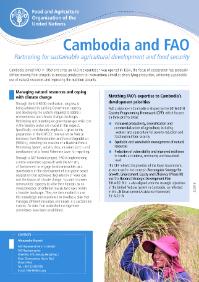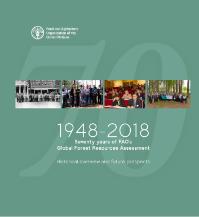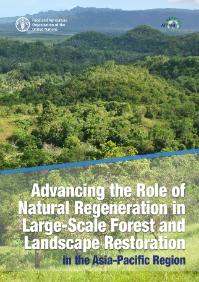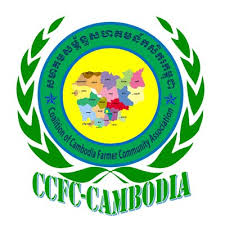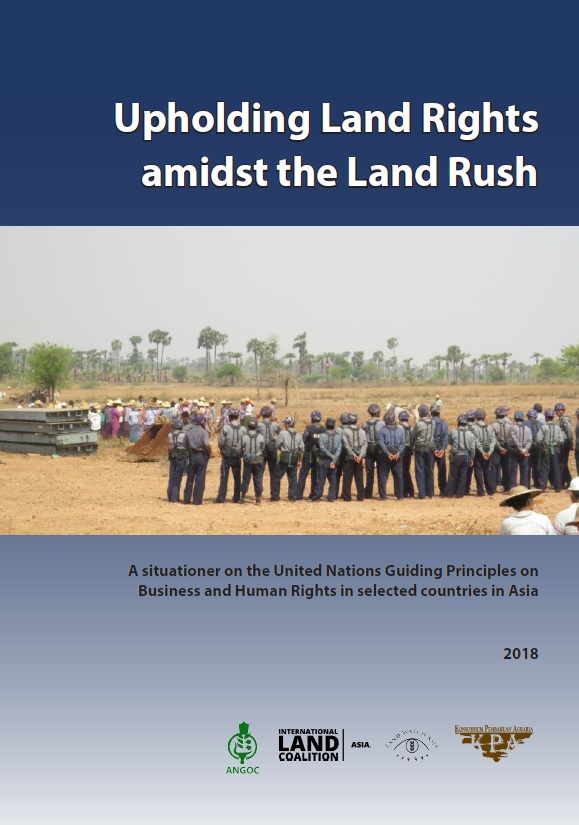Cambodia joined FAO in 1950 and since an FAO representation was opened in 1994, the focus of cooperation has graduallyshifted moving from projects to increase production to interventions aimed at diversifying production, achieving sustainableuse of natural resources and improving the nutrition…
The Global Forest Resources Assessment of the Food and Agriculture Organization of the United Nations (FAO) celebrates its 70th Anniversary in 2018. FAO's forestry department whishes to commemorate this important occurrence with a special publication on the history of the past 70 years of…
For rural women and men, land is often the most important household asset for supporting agricultural production and providing food security and nutrition. Evidence shows that secure land tenure is strongly associated with higher levels of investment and productivity in agriculture – and…
There are numerous global, regional, national and even subnational targets for increasing forest area and forest restoration. In light of these global targets and emerging ambitious national commitments, it is imperative to develop low-cost strategies and techniques for landscape restoration.…
The VGGT are very necessary for Cambodia because of the role these guidelines play in protecting human rights, and especially land rights. Let's watch the video together in order to get more information on VGGT.
The Voluntary Guidelines on the Responsible Governance of Tenure of Land, Fisheries and Forests in the Context of National Food Security (VGGT) promotes secure tenure rights and equitable access to land, fisheries and forests as a means of eradicating hunger and poverty, supporting sustainable…
This publication discusses the relevance to land and agriculture of the United Nations Guiding Principles on Business and Human Rights (UNGP BHR), and provides an overview of the state of the UNGP BHR’s implementation in Bangladesh, Cambodia, India, Indonesia, Nepal, and the Philippines. While…
Over the last decade, there have been considerable concerns raised regarding the social and environmental impacts of large-scale land concessions for plantation development in various parts of the world, especially in the tropics, including in Laos and Cambodia. However, there is still much to…
This paper examines such interactions between industrial plantations and hydropower projects, demonstrating that it is the diverse livelihoods of local people – based on everyday use of multiple resources – that crucially connects aquatic and terrestrial environments. The paper presents case…
This paper focuses on one community in Cambodia that won back land from a large land deal by grabbing onto the rupture in property relations initiated by a one-year land titling campaign. I document the struggle between competing legibility and illegibility projects which I examine through two…
A discussion paper on civil society's participation in land policy-making, focused on the pre-consultation phase of Myanmar's National Land Use Policy. Written by Eben Forbes, with research assistance from Dr. Nu Nu Khin and
Yadana Than Htaik, and published by Land Core Group,…
The Mekong Region Land Governance (MRLG) project and the Forestry Department of the Ministry of Natural Resources and Environmental Conservation (MONREC) co-hosted the “Mekong Region Customary Tenure Workshop” on 7-9 March 2017 in Nay Pyi Taw, Myanmar. This report outlines the main findings of…

